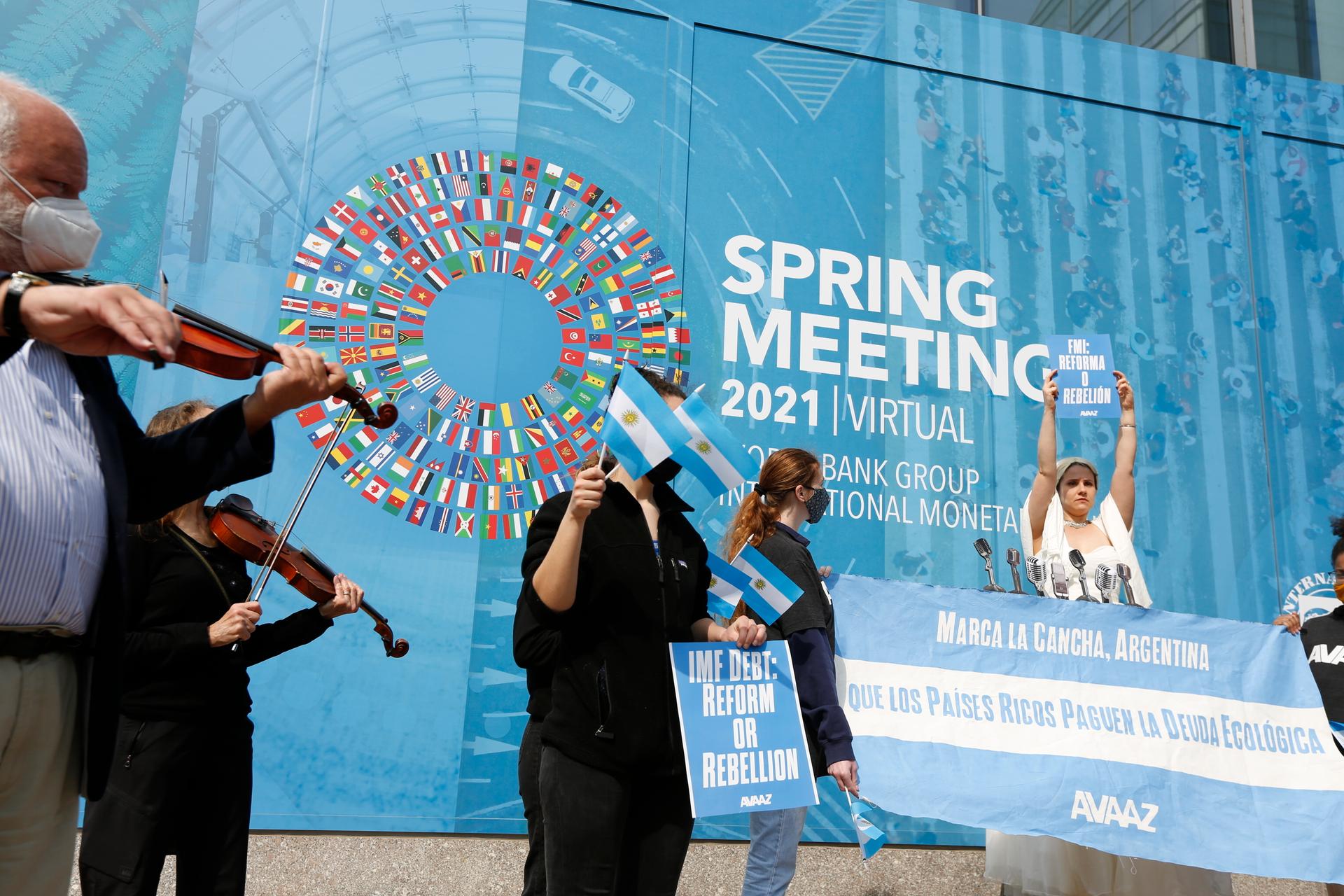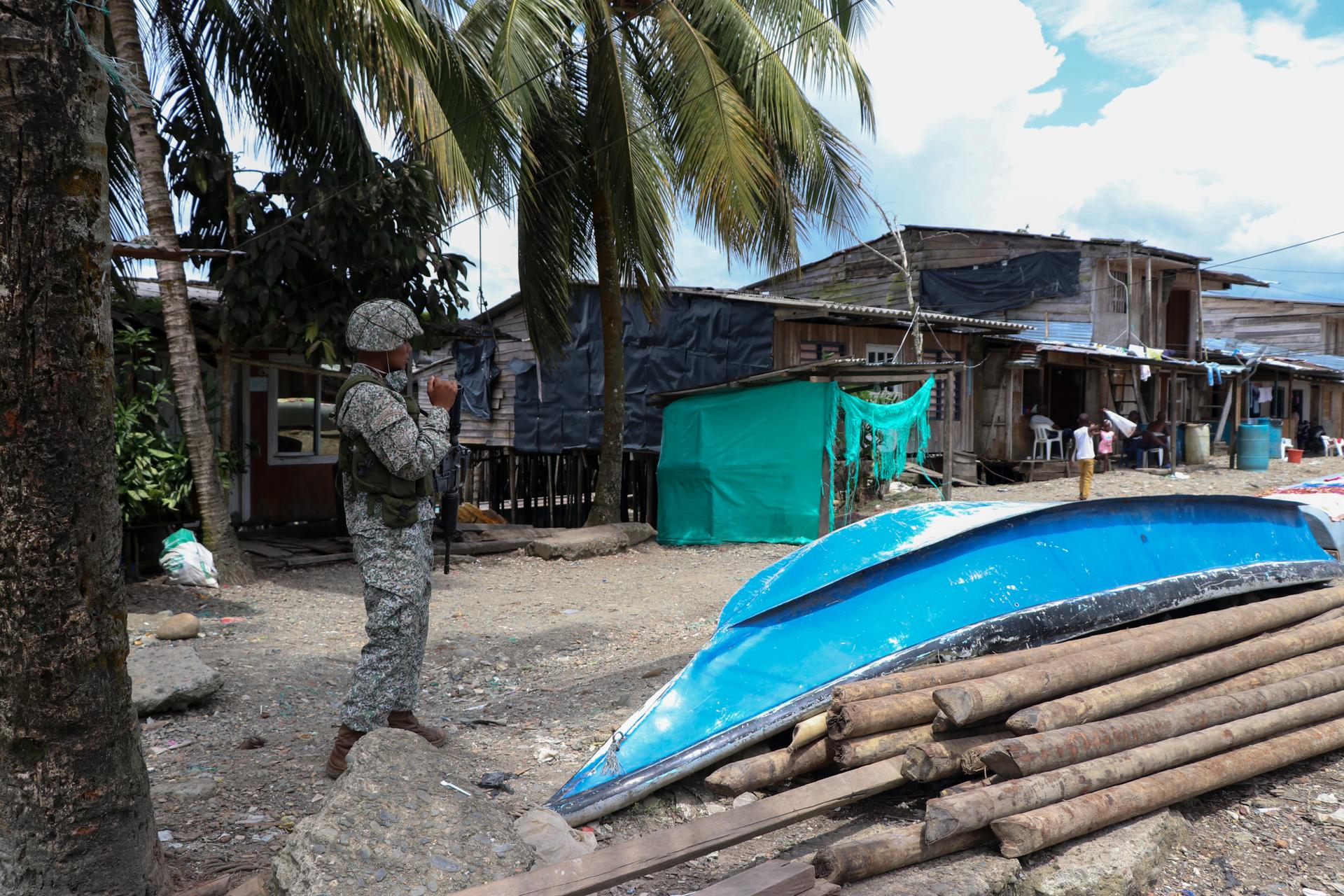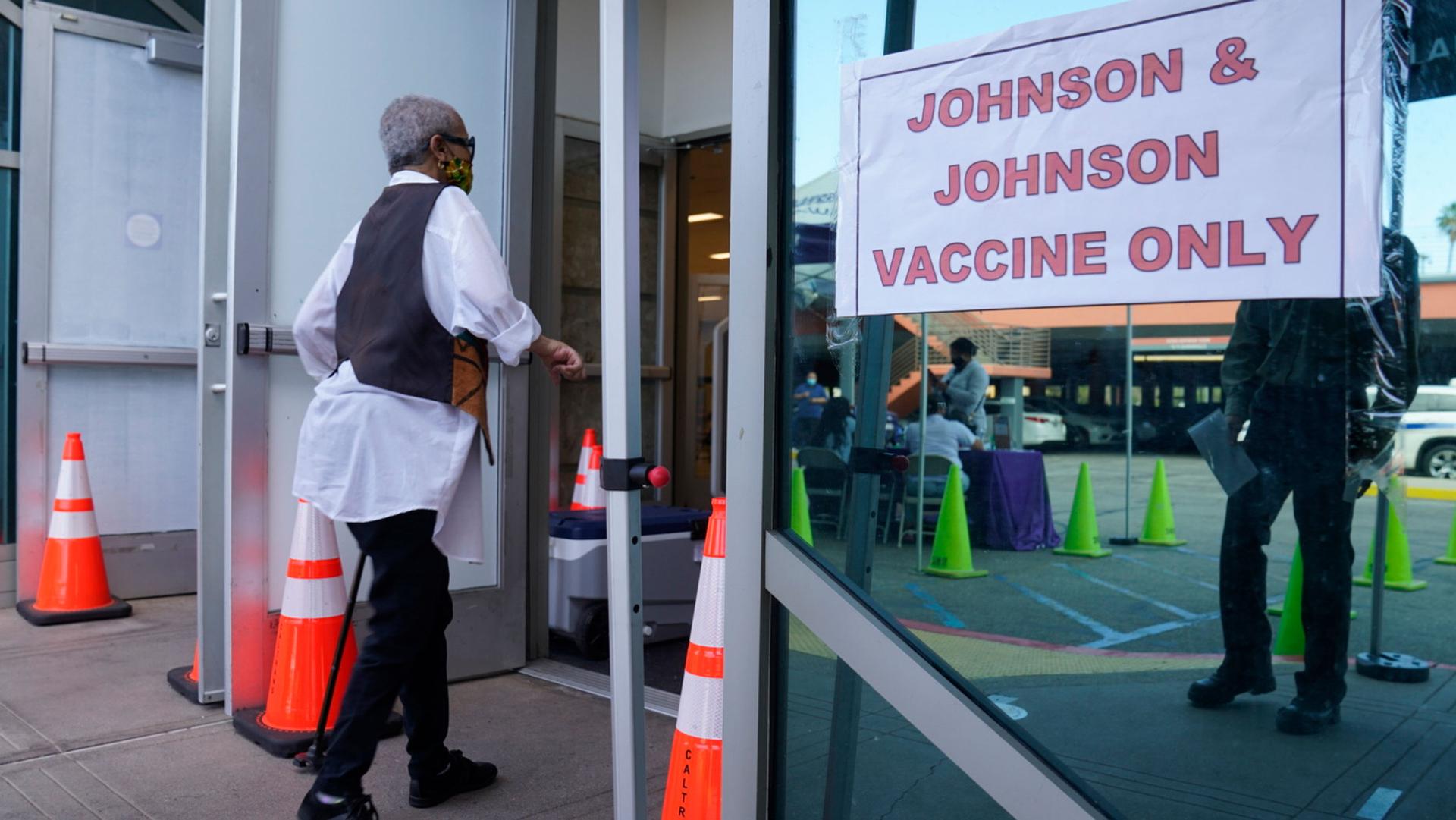CDC, FDA recommend pause of J&J coronavirus vaccine over blood clot concerns
People walk in to get their COVID-19 vaccine at the Baldwin Hills Crenshaw Plaza in Los Angeles, California, April 1, 2021.
Top of The World — our morning news roundup written by editors at The World. Subscribe here.
The US Center for Disease Control (CDC) and the US Food and Drug Administration (FDA) are recommending a pause on the single-shot Johnson & Johnson coronavirus vaccine after six cases of rare blood clots in individuals who received the vaccine in the United States.
More than 6.8 million doses of the J&J vaccine have been administered in the US, the vast majority with no or mild side effects. The CDC and FDA are reviewing data involving the rare blood clots that appeared six to 13 days after vaccination in women ages 18 to 48. On Wednesday, the CDC’s Advisory Committee on Immunization Practices will meet to discuss the cases.
“Until that process is complete, we are recommending a pause in the use of this vaccine out of an abundance of caution,” Dr. Anne Schuchat, principal deputy director of the CDC, and Dr. Peter Marks, director of the FDA’s Center for Biologics Evaluation and Research, said in a joint statement.
For people who have received the J&J vaccine and are experiencing severe headache, abdominal pain, leg pain, or shortness of breath within three weeks after vaccination, the CDC and FDA recommend contacting a health provider.
What The World is following
The Japanese government announced it will start releasing tons of treated radioactive water from the Fukushima Daiichi nuclear plant into the Pacific Ocean. The process, which has been delayed due to public opposition and safety concerns, will start in two years and last for decades. China and other neighbors have cautioned Japan against the release. The water has been stored in tanks since 2011, when a devastating 9.0 earthquake and subsequent tsunami damaged the plant’s reactors and caused the cooling water to start leaking.
And, NATO Secretary-General Jens Stoltenberg expressed the alliance’s support for Ukraine on Tuesday. Stoltenberg called Russia’s military buildup on Ukraine’s eastern border and into Crimea “unjustified, unexplained and deeply concerning.” Since Russian forces illegally annexed Crimea from Ukraine in March 2014, and Russia-backed separatists took control of Ukraine’s southeast Donbas region, conflict has simmered between the two countries, with an estimated 13,000 people killed over the past seven years.
From The World
COVID-19 recovery in wealthy countries far outpaces the developing world, IMF warns

The global recovery from COVID-19 is happening faster than expected. That was the good news from the recent International Monetary Fund meeting. Wealthy countries that had the money to pass big stimulus packages are already seeing a payoff in economic growth. But there was also bad news: The recovery has been uneven, leaving developing countries behind.
‘The way they silence us is by killing us’: Armed conflict returns to Colombia’s port city of Buenaventura

In the last four months, a wave of violence has taken over much of the port city of Buenaventura, Colombia, as two criminal groups, Los Chotas and Los Espartanos, vie for control. For decades, the city has served as a crossing point for legal and illegal trade.
Bright spot
Sixty years ago on Monday, the Earth sent its first human into outer space — Russia’s Yuri Gagarin. In 1961, Gagarin’s space capsule completed one orbit around Earth and returned home, marking a major milestone in the space race. As he took off, you could hear Gagarin’s muffled yet iconic “poehali” which means “let’s go” in Russian.
In case you missed it
Listen: Growing tension between Israel and Iran after blackout

US Defense Secretary Lloyd Austin visited Israel reiterating Washington’s commitment to the country. The visit came coincidently as news of an explosion emerged from Iran’s Natanz nuclear facility. And, voters in Ecuador have elected conservative businessman Guillermo Lasso as their new president. Also, Monday marks 60 years since Russian Yuri Gagarin’s first voyage into space.
Don’t forget to subscribe to The World’s Latest Edition podcast using your favorite podcast player: RadioPublic, Apple Podcasts, Stitcher, Soundcloud, RSS.
